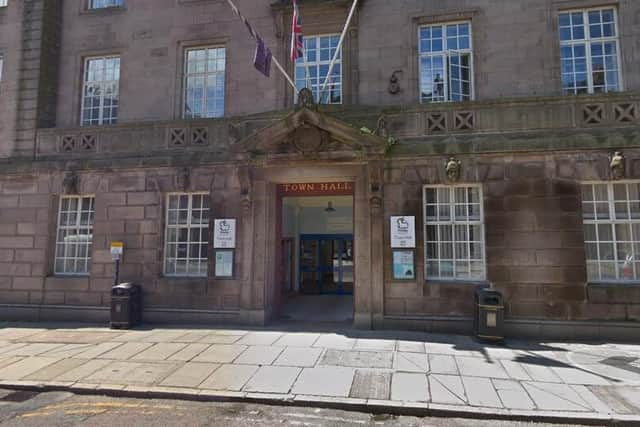Preston City Council gives approval for an elected Lancashire mayor "in principle"
and live on Freeview channel 276
The Local Democracy Reporting Service understands that all 15 local authorities in the county are set to be asked to make a similar notional commitment to the concept – which would then allow discussions to begin with the government about a long-awaited devolution deal for Lancashire.
The councils will additionally be requested to commit to the idea of a combined authority to oversee any new set-up – as Preston has also done. However, a final decision would be taken only if and when a deal is struck – an already lengthy process likely to be delayed by up to a year by the coronavirus crisis.
Advertisement
Hide AdAdvertisement
Hide AdIt follows a meeting between Lancashire’s council leaders and government officials back in February, designed to kick-start the county’s stalled progress along the path to devolution.


Wrangles over a deal for Lancashire have rumbled on for nearly four years and there has been increasing concern among some leaders that the county is being left behind when it comes to the powers and cash being dished out by the government to other areas – including its neighbours in Greater Manchester and the Liverpool City Region.
The idea of an elected mayor has previously proved a sticking point for some districts, as has the issue of a veto on a new combined authority.
Preston’s in-principle support for an elected mayor – similar to the post held by Andy Burnham in Greater Manchester – was given by chief executive Adrian Phillips under emergency decision-making powers being used while meetings are cancelled during the coronavirus crisis. It would usually be a matter for the full council – as the ultimate decision on whether to back a devolution deal will be.
Advertisement
Hide AdAdvertisement
Hide AdCouncil papers on the issue describe a combined authority as “an opportunity to create a single, clear and influential voice for Lancashire”.
Council leader Matthew Brown said the chief executive’s decision “followed the submission of a report exploring the outline proposal, which included an overview of the role, function, governance and benefits of the combined authority model of local government”.
He added: “Of course, any decision to establish a model of this kind would require the consent of all the local authorities covered within the combined authority area, which is not being sought at the present time.”
Lancashire County Council leader Geoff Driver, who has previously stressed the potential benefits of a devolution deal, welcomed Preston’s provisional support.
Advertisement
Hide AdAdvertisement
Hide Ad“There is no doubt in my mind that the people of Lancashire need to get the benefit of devolution as part of the levelling-up process which the government will get back to once we get the current crisis out of the way.
“It is reassuring and pleasing to see that Preston are in favour of that, too,” County Cllr Driver said.
Typical devolution deals include the localising of powers on issues such as transport and skills – along with extra government cash, often to the tune of £30m a year over the course of 30 years.
At the meeting between Lancashire's leaders and officials from the Ministry of Housing Communities and Local Government (MHCLG) in February, it was suggested that an overhaul of the county's two-tier council structure would be expected by the government in order to enable efficient operation of the combined authority - which would have a membership made up of constituent councils.
Advertisement
Hide AdAdvertisement
Hide AdDepending on any future agreement, that could result in all of Lancashire's local authorities – county, district and unitary – disappearing altogether in their current form.
According to the Local Government Chronicle magazine, MHCLG officials have stipulated that any new single-tier councils created in Lancashire – similar to those currently in place in Blackpool and Blackburn – should cover populations of between 300,000 and 700,000 people.
That could lead to the creation of anything between two and five standalone councils across the county – provided the government offers some flexibility over the population size of each authority.
However, it is understood that the government could be open to a continuation of Lancashire's two-tier set-up - but with a reduction in the number of district authorities, of which there are currently 12.
Lancashire has operated a combined authority in shadow form since 2016.